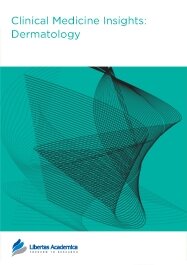

Publication Date: 04 Feb 2010
Type: Review
Journal: Clinical Medicine Insights: Dermatology
Citation: Clinical Medicine Insights: Dermatology 2010:3 1-4
doi: 10.4137/CMD.S3630

Nicolau Syndrome, first described in the 1920’s in patients treated with bismuth salts for syphilis, is a rare adverse reaction at the site of intramuscular drug injection. It is clinically characterized by severe pain immediately after injection, and rapid development of blanched skin or livedoid reticular patches. Occlusion of peripheral arterial vessels is suggested to play a major pathogenic role. Since there is no specific therapy for this condition, an appropriate conservative treatment should be applied.
PDF (4.77 MB PDF FORMAT)
RIS citation (ENDNOTE, REFERENCE MANAGER, PROCITE, REFWORKS)
BibTex citation (BIBDESK, LATEX)

I highly recommend publication in Libertas Academia journals. The entire submission, review and publication process for our article in Clinical Medicine Insights: Dermatology was easy and quick. The reviews were very professional and helpful and the publication fees were reasonable. We also appreciate that our article is available online free of charge to anyone interested in it.

All authors are surveyed after their articles are published. Authors are asked to rate their experience in a variety of areas, and their responses help us to monitor our performance. Presented here are their responses in some key areas. No 'poor' or 'very poor' responses were received; these are represented in the 'other' category.See Our Results
Copyright © 2013 Libertas Academica Ltd (except open access articles and accompanying metadata and supplementary files.)
Facebook Google+ Twitter
Pinterest Tumblr YouTube